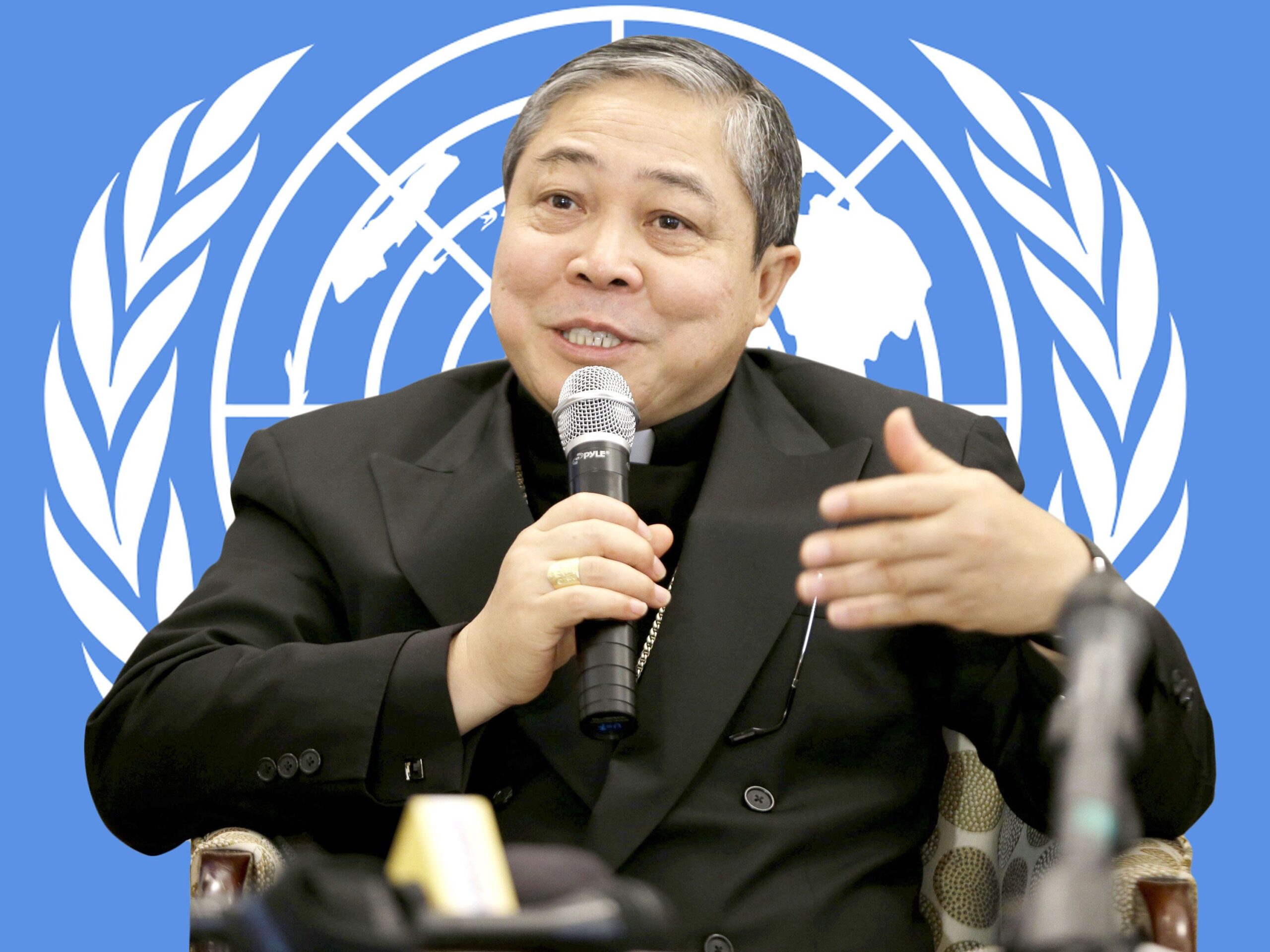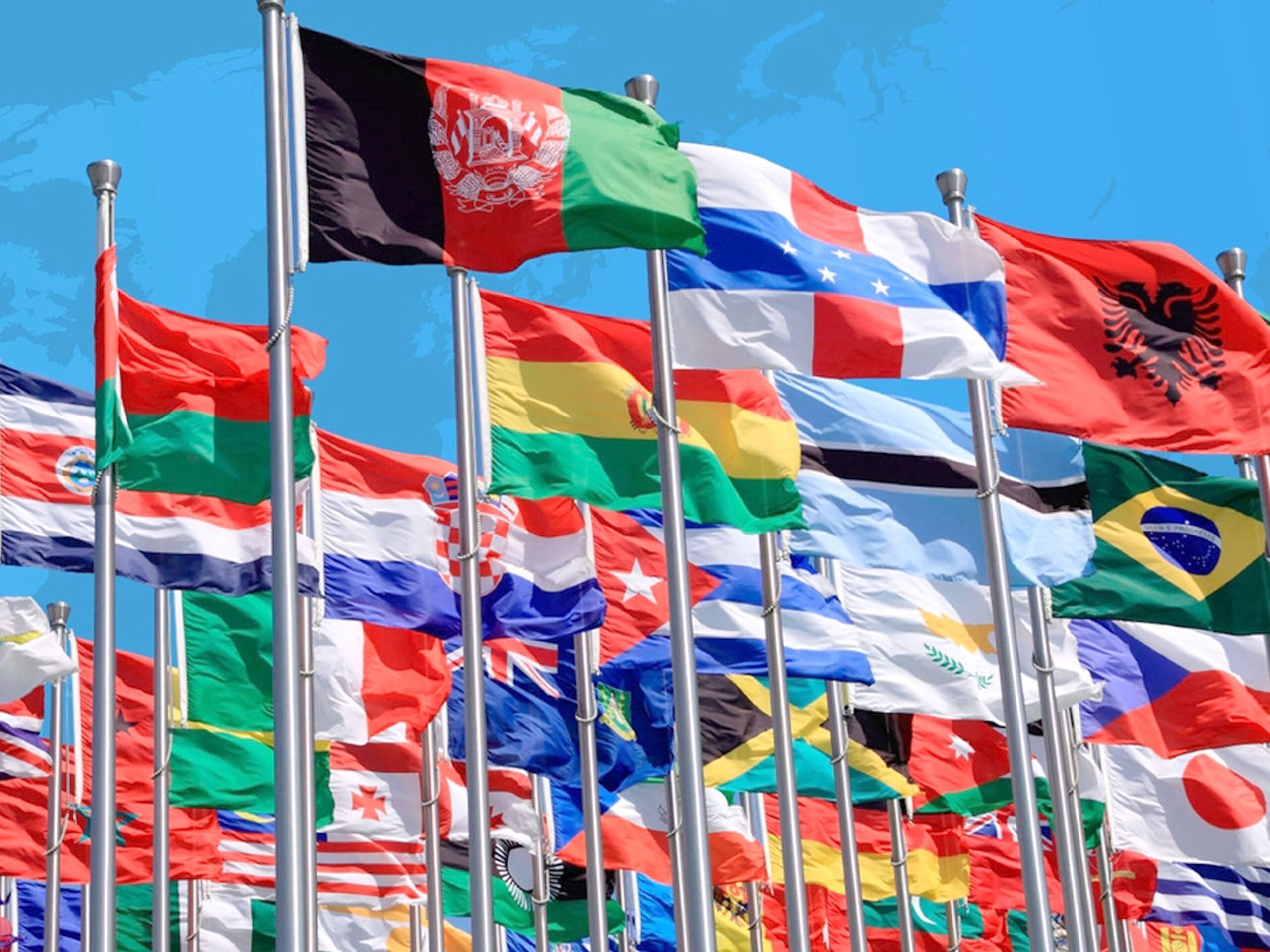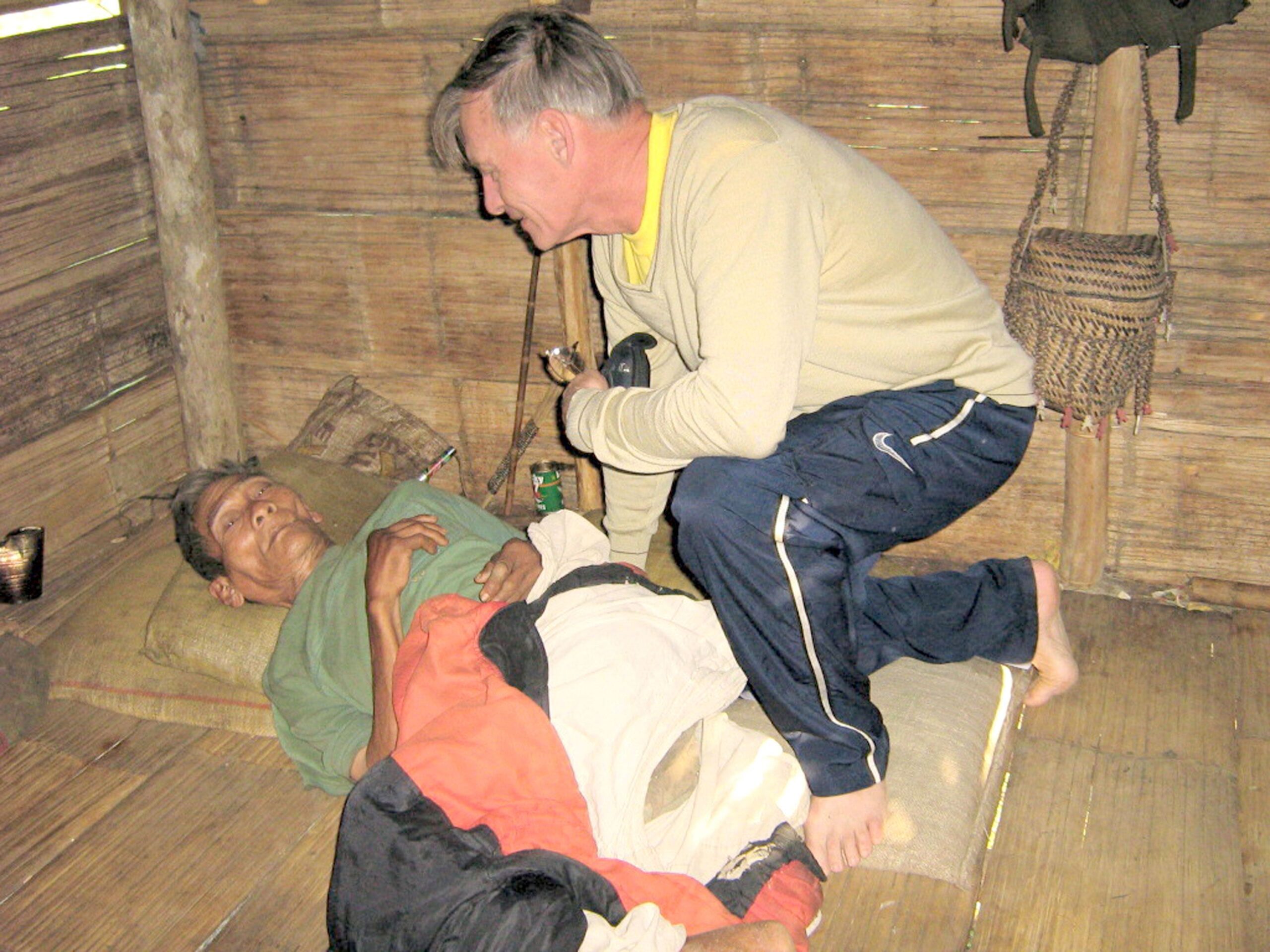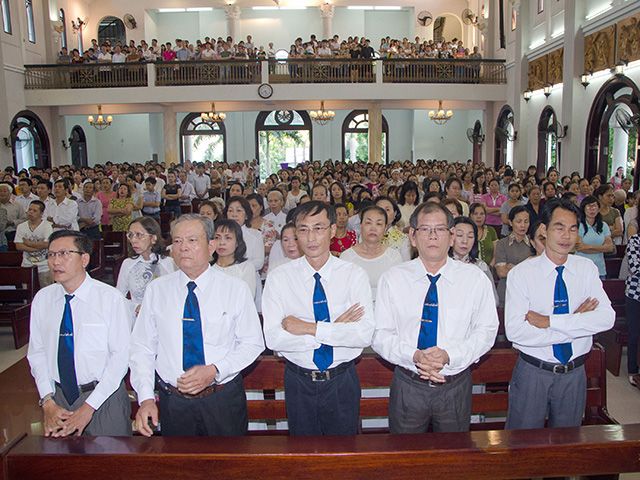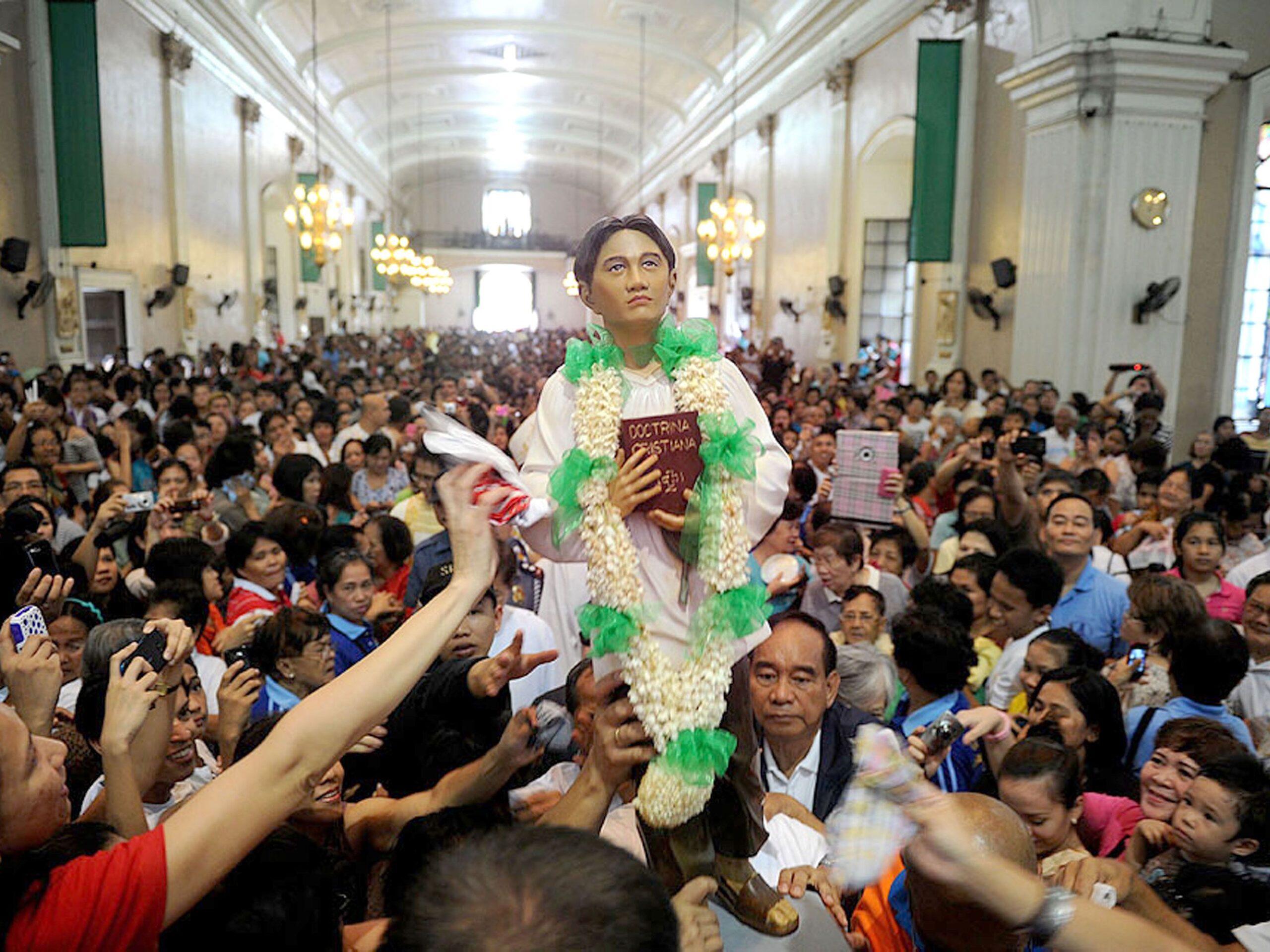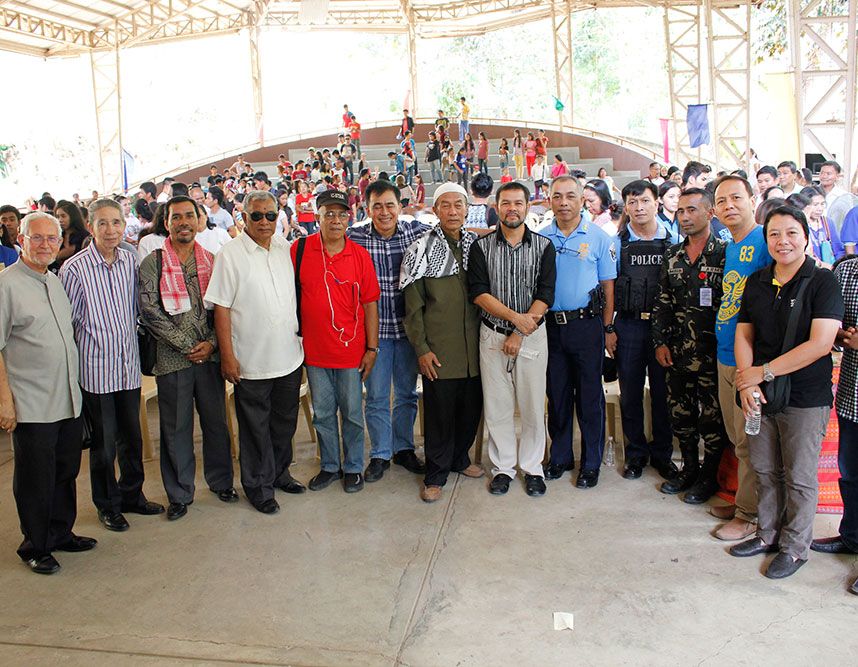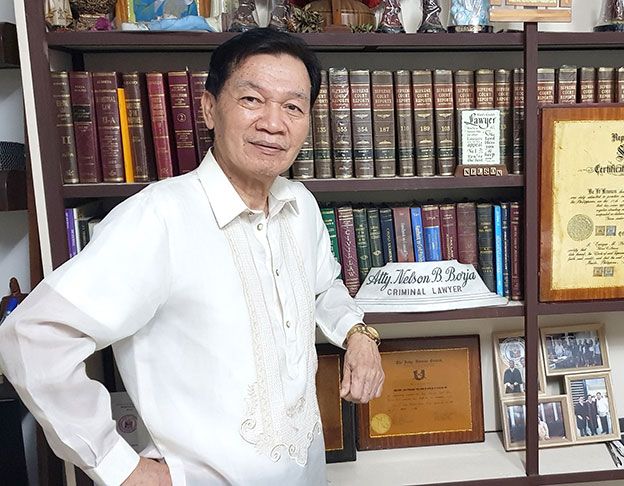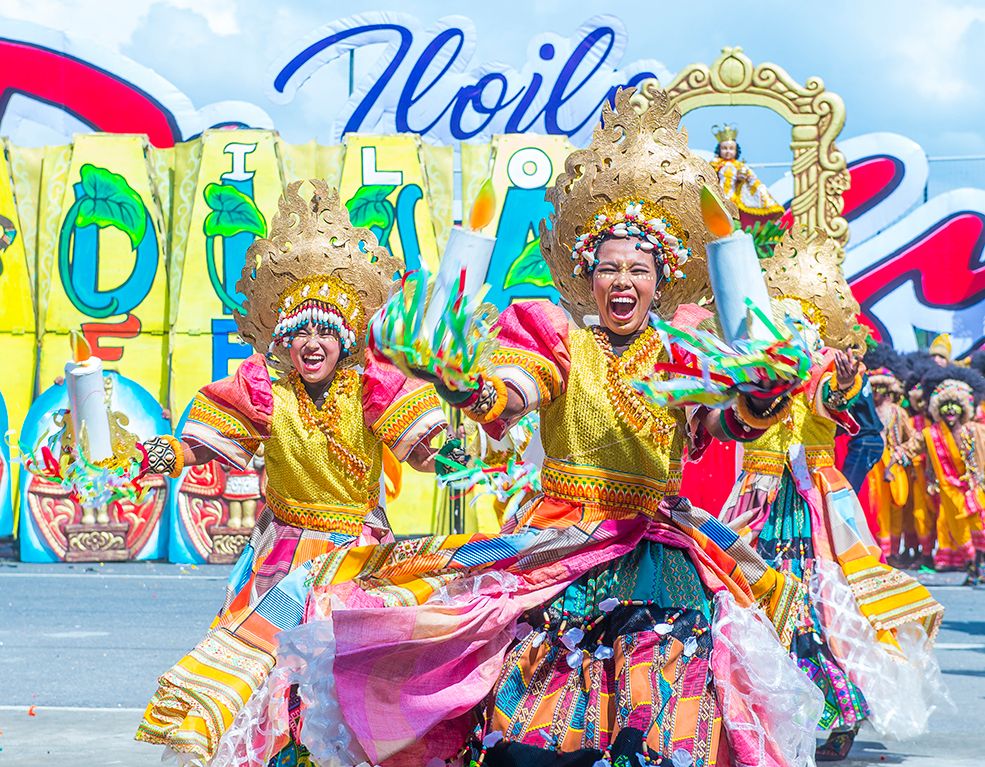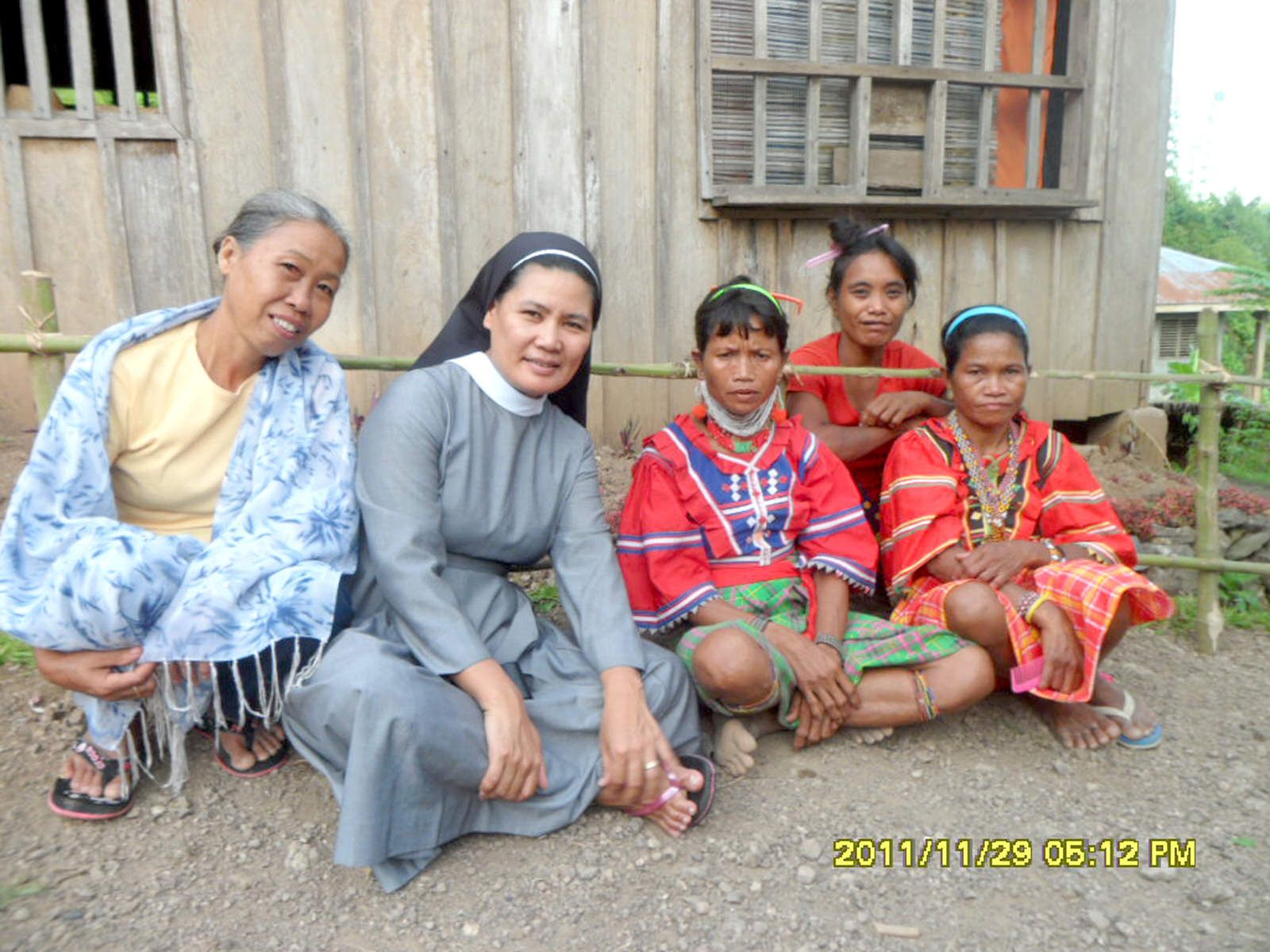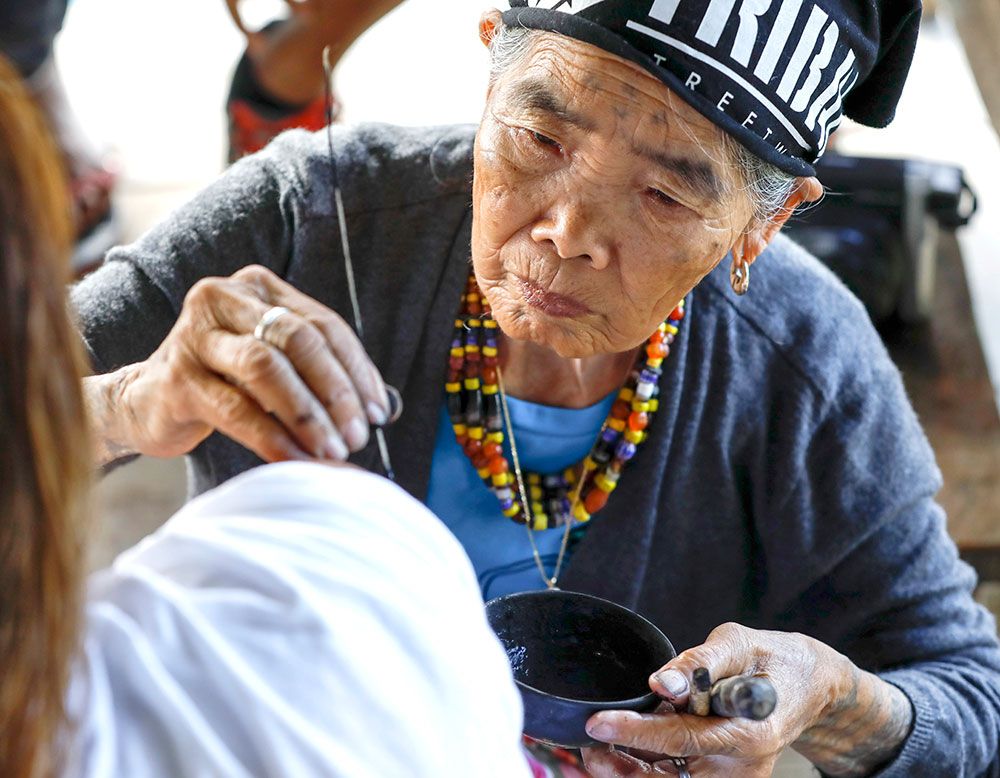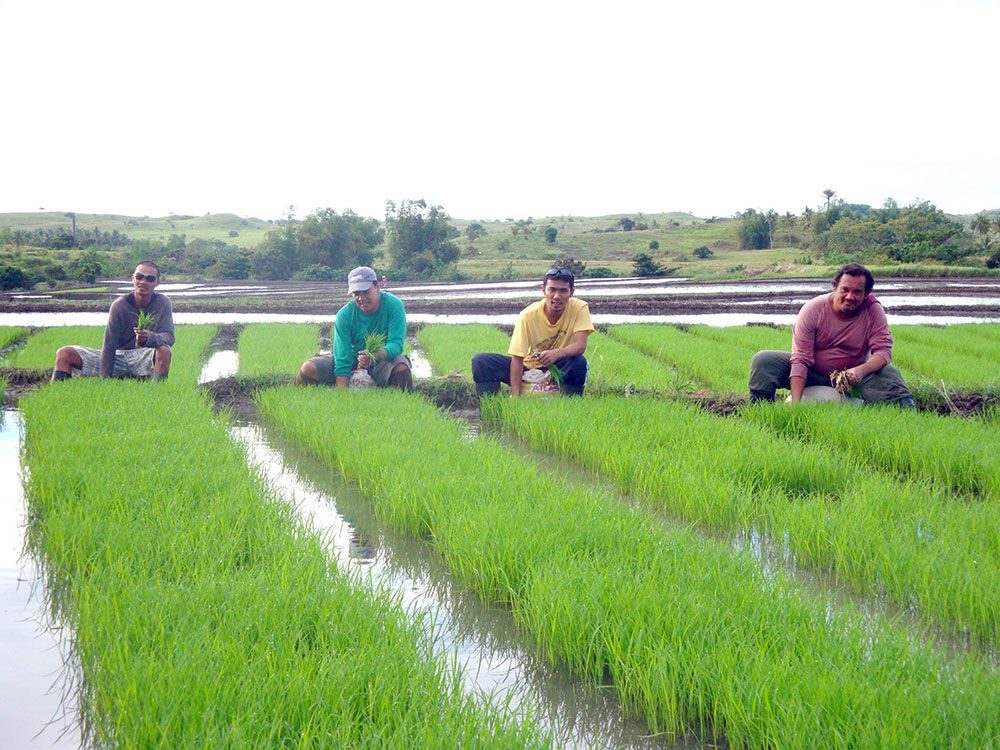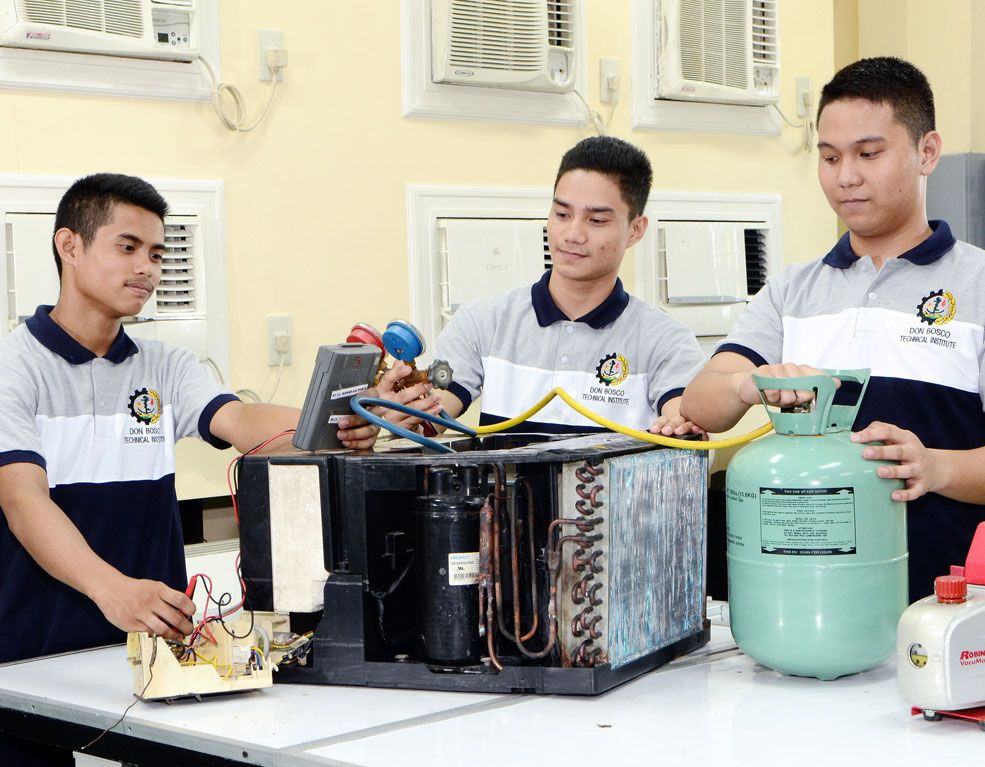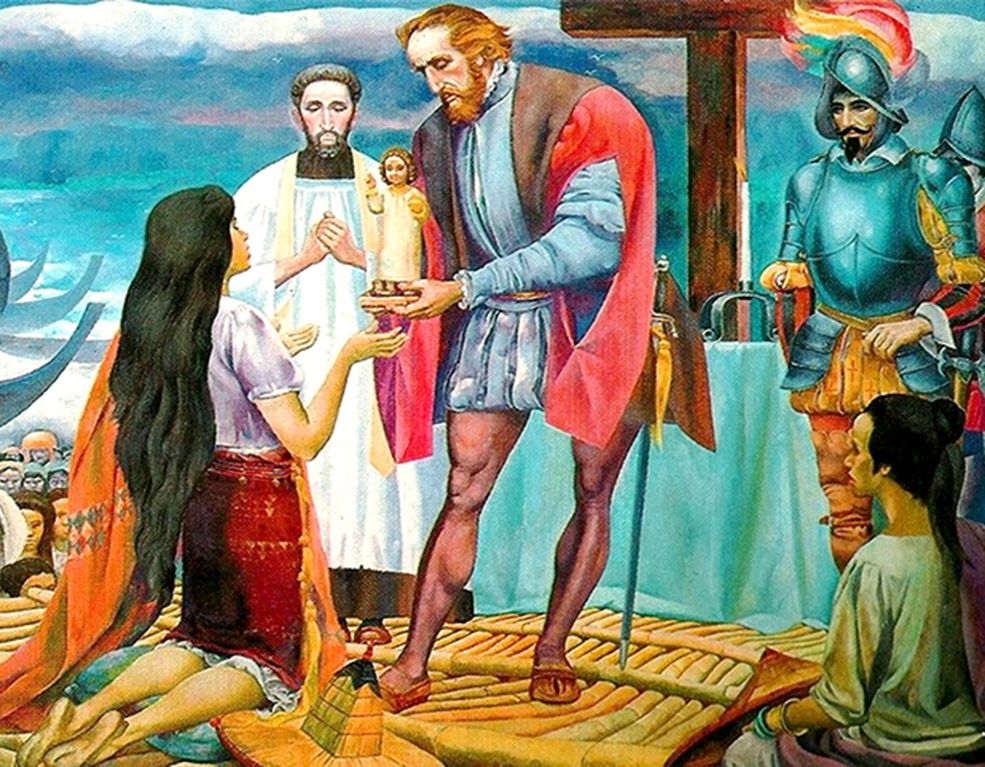The Holy See’s presence at the United Nations is proof that the Catholic Church is concerned about the global population regardless of people’s varying religious and cultural backgrounds. It uses its neutral voice, yet strong influence, to inspire world leaders, if not compel them, to solve global issues with speed and utter respect to human dignity.
With Pope Francis’ most recent trip to Mexico, his 12th pastoral visit outside of Italy since his installation in 2013, the complicated global issue of migration once again came to the forefront. Coincidentally, the Holy See’s permanent observer to the United Nations, Archbishop Bernardito Auza, himself belongs to a race of itinerant people: the Filipinos.
Auza, 56, hails from Talibon, Bohol in the Philippines. He was ordained priest under the Roman Catholic Diocese of Santa Rosa in California on June 29, 1986. After finishing his diplomatic and linguistic studies at the Vatican Diplomatic School, Auza has served in the Vatican’s diplomatic service. He became more visible in the international media after the January 12, 2010 earthquake that hit and destroyed lives and properties in Haiti. Auza’s foray in global affairs did not wane after he was appointed by Pope Francis as the permanent observer to the U.N. last June 1, 2014.
At his office at 25 East 39th St, New York, N.Y., Auza shared a lot about himself, his concept of family, migration, among other things.
What has been the immediate impact of Pope Francis’ visit to the United Nations headquarters last year? Are there programs or policy changes initiated as a direct response to Pope Francis’ message to the U.N. General Assembly and/or Staff?
The Holy Father did not come to the United Nations to dictate or suggest changes. He came, above all, to inspire and encourage all the nations of the world and all stakeholders in the affairs of the international community to pursue unceasingly the ideals and objectives of the United Nations.
Pope Francis reiterated the appreciation expressed by his predecessors in reaffirming the importance which the Catholic Church attaches to the United Nations and the hope which she places in its activities to spare us from the scourges of wars, to foster respect for universal human rights, to promote development, and to care for our common home. These primary objectives of the United Nations sound so familiar to us, Catholics, because they are also at the heart of the Social Doctrine of the Church.
The message of the Holy Father has been very well-received. Rather than legislating or making rules, the Holy Father directly touches hearts and minds, inspiring individuals and societies to act concretely to reverse the degradation of the conditions of our planet Earth, to fight, to eradicate extreme poverty and chronic hunger, and to foster peaceful societies and harmonious co-existence. I can affirm that the results have been very positive, and the Pope’s visit to the United Nations on September 25 has contributed greatly.
What is your take on the effects of Overseas Filipino Workers (OFWs) on the families?
There is no doubt that the absence of parents who go abroad to find work to support their families has negative, in many ways immeasurable, effects on the children and on the spouses themselves. Yet, who would dare criticize parents who sacrifice so much to the point of leaving their families behind and face serious risks in foreign lands so that their families could have the essentials to live a dignified life and provide good education to their children? Migrating to find work is not a luxury nor willed for itself but a response to a need and to a desire to lead a life free from chronic want.
We can go on and on debating on this issue. But I would just like to ask one question, namely, do the economic benefits of working abroad compensate the so-called “social costs” of absentee parents? This question concerns us deeply as Filipinos and as Catholics. Most of the Filipinos are Catholics, and the Philippines is a major supplier of migrant labor in Asia and in many other countries in the world, like Italy or Spain and even Lebanon and Israel.
It is evident that the families of our OFWs and the country itself benefit from robust remittances. Families build decent homes. Children don’t go hungry and get decent education. The hard currency helps build the country’s foreign reserves and sustains economic growth. But at what cost? We know them already, such as painful separation of spouses and children who practically do not know their parents while craving for parental care, many of whom could become vulnerable to all forms of abuse or develop a consumerist attitude without realizing that the money they waste was earned by Tatay (father) or Nanay (mother) or both through the humble and, at times, humiliating work abroad.
While the whole society must be concerned on how to limit the negative effects on the spouses and children of those who leave the country to find work somewhere, the Church must be even much more concerned and must give a pastoral response to the problems connected to the phenomenon.
As a permanent observer of the Holy See to the U.N., how does the Vatican, or the Catholic Church for that matter, influence global policy especially in terms of the family and population?
The Holy See participates in most of the debates at the United Nations. These are opportunities for me to share and communicate the teachings of the Church to the United Nations, especially on matters closest to the Church’s concerns, like marriage, family and the education of children. The Holy See’s mission places many other questions within the context of the family, whether in the field of development, drug prevention or the creation of peaceful societies. It continues to reaffirm that the family is the fundamental unit of society and can immensely contribute to the common good, urging authorities and policymakers to foster the family. After all, healthy families create healthy societies.
How would you define your main mission at the U.N.?
The primary vocation of the Permanent Observer of the Holy See to the United Nations is to communicate the millennial experience of the Catholic Church to humanity and to put this experience at the disposal of the United Nations. It thus collaborates with the latter in reaching its primary objectives, among which are to spare our world from the scourge of wars and to promote the respect of fundamental human rights. As Paul VI affirmed in his Address to the U.N. General Assembly on 4 October 1965, the Holy See’s contribution to the work of the United Nations comes from “our historical experience” as an “expert in humanity.” While the Holy See and the United Nations share many common goals and objectives, the Holy See offers to the world community its own perspectives and experiences on the very same issues.
As Permanent Observer, my primary mission is to represent the Holy See and the Holy Father, in particular, at the heart of the “Family of Nations” that is the United Nations. I believe this role has become more and more evident in the last decades as the teachings and actions of the popes have gained more and more attention in the international community, in general. Moreover, the status of the Holy See as Permanent Observer to the United Nations was formalized in 2004.
The Holy See’s mission at the United Nations is of key importance for the Holy See’s diplomatic work. It aims to assist the U.N. in realizing “peace, justice, human dignity and humanitarian cooperation and assistance.” How do you feel before such big challenges?
It is a work that I have neither dreamed in my sleeping hours nor desired when I am awake! I did have working experiences in multilateral matters but I thought this type of work was not for me. Having said that, I would never have said “No” to the Holy Father, and so I accepted the assignment without second thoughts. Representing Pope Francis at the United Nations is a double-edged sword: on one hand, the enormous respect world leaders have for him makes my job easier; on the other hand, the prestige and the weight he enjoys in the international community makes my work more demanding!
Several times the Holy See has been asked to raise its status in the United Nations to that of a member state. However, it has preferred to keep its permanent observer status. Why?
The Holy See enjoys, by its own choice, the status of Permanent Observer State at the United Nations, rather than that of a voting full Member. This is due primarily to the desire of the Holy See to maintain absolute neutrality in specific political problems.
However, this does not mean that the Holy See cannot or does not make known its positions on specific questions, particularly those with moral and social implications. In fact, since it became a Permanent Observer State at the United Nations on 6 April 1964, the Holy See has always participated in the meetings of all the sessions of the General Assembly and of the U.N. subsidiary bodies. It is a party to many international instruments as diverse as the Vienna Convention on Diplomatic Relations and the Treaty on the Non-Proliferation of Nuclear Weapons. It has been actively engaged in the debates and discussions on the important issues that matter to the whole world, most recently at the Climate Conference in Paris.
In brief, the Holy See does not see its non-voting presence at the U.N. as a limitation but, rather, as an expression of its total neutrality and equal friendship with all nations. It does not alter nor negatively affect its overall goal of bringing the leaven of the Gospel and the Church’s own experience of humanity to all the complex reality of international relations and to international debates about the problems that our world faces.
If the massive migration of refugees from the Middle East to Europe and to other parts of the world is on top of the Holy See’s agenda, what has been accomplished so far?
Pope Francis’ first trip outside Rome was to Lampedusa, that island of hope and salvation to so many who cross the Mediterranean to get to Europe. So many do not make it. Before this tragedy, that is repeated so many times, the Pope felt that he had to come to Lampedusa to pray and to offer a sign of his closeness, as well as to challenge our consciences. Unfortunately, since then the number of migrants, refugees and asylum-seekers has dramatically increased and the tragedies repeat themselves.
Migration has many faces and many implications, positive and negative. But it is sad to note that migration has become almost synonymous with misfortunes, violence and loss of economic gains. Migration is, unfortunately, no longer a choice for people, and that an overwhelming amount of migrants are forced to flee their homes due to extreme want and grinding poverty, natural catastrophes and environmental degradation, wars and conflicts. The negative narrative on migration exacerbates the plight of migrants, making them face racism, xenophobia, stereotypes, even scapegoats for terrorism and economic difficulties.
The Permanent Observer of the Holy See to the United Nations has repeatedly pleaded and will not cease to plead before the international community for a more humane treatment of migrants. We will continue to call for a systematic and active cooperation between states and international organizations which, considering the dimensions and complexities of the challenge, is the only way capable of effectively regulating and managing migration movements.
As one of the founders of the International Atomic Energy Agency, the Holy See has always backed the right use of nuclear energy for civilian reasons. At the same time, the Holy See has always worked for a treaty that would lead to a ban on the possession of nuclear weapons. We continue to see governments developing their nuclear programs for the build up of nuclear weapons for massive destruction. Has this mission been a failure?
Disarmament efforts, in general, bear fruit ever so slowly. It has been even more so when it comes to the abolition of nuclear weapons. All the popes of the nuclear era denounced the possession of such weapons.
Pope Francis has injected great new momentum in the campaign for the abolition of nuclear weapons. To lend further impetus to nuclear disarmament efforts and to highlight the moral argument for the abolition of nuclear weapons, I organized several conferences, delivered several talks and circulated documents of the Holy See on the topic. I am pleased to highlight that the First (Disarmament) Committee of the U.N. General Assembly has just adopted three new resolutions which have been directly inspired by the words of Pope Francis. One of them is entitled “Ethical Imperatives for a Nuclear-Weapon-Free World.” The resolution affirms inter alia that “given the humanitarian impact of nuclear weapons, it is inconceivable that any use of nuclear weapons, irrespective of the cause, would be compatible with the requirements of international humanitarian law or international law, or the laws of morality, or the dictates of public conscience.” I guess you would agree with me that even just the mere introduction of the term “ethical imperatives” into the debate on nuclear disarmament is already an achievement in itself.
From nuclear disarmament to climate change?
The Catholic Church is certainly not a newcomer on what has become an immense theme in the international stage, namely, climate change. When people ask me since when the Catholic Church has become interested on this question, I always answer “since Genesis!”
Now, one can pretend not to know the Book of Genesis but can hardly pretend not to know or not to have heard of Pope Francis’ encyclical Laudato Si’: “On the Care of Our Common Home.” At the heart of the encyclical, we find this question: “What kind of world do we want to leave to those who come after us, to children who are now growing up?” This question arises from the observation that today the Earth, mistreated and abused, is lamenting, and its groaning joins those of all the world’s forsaken and “discarded.”
The Pope is acting neither as a prophet of doom nor a doctrinaire nor an ideologue. He turns to all as a pastor, as a moral authority, as a father, if you will. He calls for transformative action that goes beyond business as usual but that will bring together science and religion, technology and philosophy, culture, economics and politics, persons and groups. He challenges leaders to find an effective ‘legal framework which can set clear boundaries and ensure the protection of ecosystems. In the encyclical, the Holy Father talks of the gravity of the environmental degradation. But he remains confident we can turn things around. Not all is doomed. The cause is not lost.

